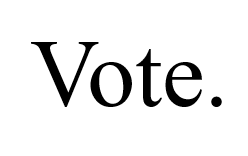Disclaimer: The views expressed within this article are entirely the author’s own and are not attributable to Wessex Scene as a whole.
In a night of police crackdowns last Friday (26th of March), ten protesters were arrested in Bristol and a peaceful sit-in outside the Bridewell police station was dispersed violently – protesters were beaten with riot shields and truncheons. In one case, a young woman was attacked by a police dog. Kevin Blowe, of Netpol (Network for Police Monitoring) said it was as though the police had been “let off the leash”, and Nadia Whittome MP, among others, has called for an independent inquiry into the police handling of the protests in Bristol.
One can’t help but admire the indefatigable spirit of these young protesters who, despite repeated escalations by and with the police, have turned out and put themselves on the line to protest the Police, Crime, Sentencing and Courts Bill – for our purposes, the ‘policing bill’ – not just in Bristol but across the UK.
It’s necessary to clarify this is not a protest against the whole bill, which is a 300-page ‘overhaul’ of the justice system, something the government ran on in 2019. But there is a section in the bill that expands the police powers over protests – powers created in 1986 with the Public Order Act – and this is a danger to the democratic right to protest. Though there are other sections under scrutiny, this section is the focus of the protest. This is why protesters are chanting ‘kill the bill’ in cities across the UK.
In a statement from Liberty, the UK’s largest civil liberties organization, they had the following to say; “these proposals would give the police yet more powers to clamp down on protest. They risk stifling dissent and making it harder for us to hold the powerful to account.” S
Sisters Uncut, a feminist direct-action group, also released a statement on 15th of March, saying the following; “As the actions of police at peaceful vigils this weekend show, police abuse the powers that they already have… The right to protest is essential for all people, and especially survivors of violence, to hold powerful institutions accountable.”
What are the new protest powers contained in the bill?
Currently, if the police want to put restrictions on a protest, in theory they have to demonstrate that the protest is a danger to public order, to property, or of disruption to the wider community.
These restrictions don’t apply to static, small or one-person protests – the bill would expand them to apply to those as well. There is also an expansion of those conditions under which a protest can be restricted, to include if the noise causes a ‘significant impact on those in the vicinity or serious disruption to the running of an organization’.
If the bill passes, the police would have the power to impose noise limits, set a clear start and end time for protests, not just to marches and large demonstrations, but to static gatherings and one-person protests. There are several problems with these changes.
First of all, there are events that have noise limits, start and end times, that go home when the police ask them to; parades, parties, village fairs and the like, but none of them are protests. There’s not much point in protesting if you’re going to stay out of the way and be quiet, the point is, at least, to make your demands heard, but also to make it hard for those in power not to act on them.
Second, in the same fact sheet, the Home Office says there is ‘a balance to be struck between the rights of the protestor and the rights of individuals to go about their daily business’. There’s something absurd about this comparison. The mild inconvenience caused by a protest being compared to the state intruding on a person’s democratic right to protest and freely express their opinion, reads like a bad joke. It has a set-up and a punchline, but a laugh isn’t forthcoming.
There is a quote from Cressida Dick, from that fact sheet, where says that there is a need for these new powers; ‘to deal with protests where people are not primarily violent or seriously disorderly but, as in this instance, had an avowed intent to bring policing to its knees and the city to a halt,’ which couldn’t be clearer.
She’s referring to the Extinction Rebellion protests of 2019, which were notoriously difficult to deal with until the police brought in a city-wide ban on XR and over 1,000 individuals were arrested in eight days. Not only is it sinister to hear the most powerful police officer in the country say she wants to ‘deal with’ protests, this example also shows that the police don’t need new powers. They’re capable of clamping down on the right to protest when they want to, with the powers they already have.
This should concern everyone. You might not want to protest now, but can you be sure that will always be the case? History is full of examples of law-abiding, quiet citizens being forced into the streets, when there was a need for disruption, for noise, to disobey police orders to disperse. If and when that time arrives, surely you would want the legal right to protest?
Not that there’s any shortage of things to protest about either – for one example, Richard Spence’s article on the ties between the arms trade and universities is a good place to start
In the words of a member of Sisters Uncut; “The last week has shown that protest works. That’s why they want to ban it, and that’s why we’re fighting back.”



